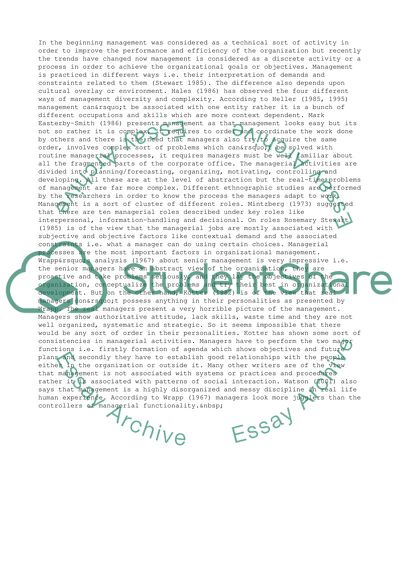Cite this document
(“The Reality of Management: Different Roles Essay”, n.d.)
Retrieved from https://studentshare.org/management/1413001-summery-of-leadership-and-management-development
Retrieved from https://studentshare.org/management/1413001-summery-of-leadership-and-management-development
(The Reality of Management: Different Roles Essay)
https://studentshare.org/management/1413001-summery-of-leadership-and-management-development.
https://studentshare.org/management/1413001-summery-of-leadership-and-management-development.
“The Reality of Management: Different Roles Essay”, n.d. https://studentshare.org/management/1413001-summery-of-leadership-and-management-development.


